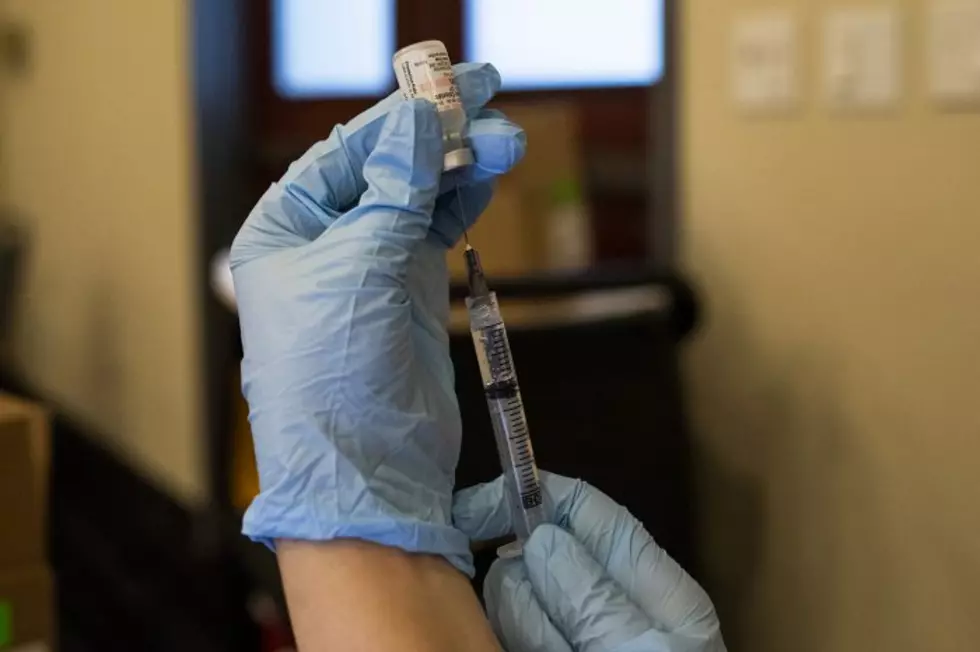
Federal judge temporarily blocks MT vaccine discrimination law
(Daily Montanan) A U.S. District Court judge has temporarily voided Montana’s vaccination discrimination law that conflicted with a federal mandate that all healthcare workers at facilities receiving federal funding be vaccinated.
Under House Bill 702, employers are prohibited from asking about a potential employee’s vaccination status. But an interim federal rule, which the United States Supreme Court reaffirmed, requires any healthcare provider who accepts CMS payments to comply with COVID-19 vaccination requirements, including all workers being vaccinated. If hospitals are out of compliance with the federal rule, they risk losing Medicare and Medicaid funding.
In his ruling, U.S. District Judge Donald Molloy said that compliance with HB702 is likely unconstitutional because the federal rule preempts it.
“And given that the plaintiffs have shown they are likely to succeed on the merits of their preemption claim, ignoring the Interim Final rule means complying with a statute that is ‘likely unconstitutional because (it is) preempted,” Molloy wrote. “This kind of constitutional injury shows a likelihood of irreparable harm.”
In his order, Molloy wrote the preliminary injunction will apply only to healthcare facilities receiving federal reimbursements and will only be in place “so long as the Interim Rule remains in effect.”
In September, the Montana Medical Association, the Montana Nurses Association, and a handful of individuals filed a complaint against Attorney General Austin Knudsen and state Labor and Industry Commissioner Laurie Esau, asking for a preliminary injunction on HB 702 and for the law to be deemed unconstitutional.
In a statement, the Montana Nurses Association praised Molloy’s ruling.
“Today’s ruling will ensure that nurses and healthcare providers in Montana are able to provide the best quality care to Montanans and ensure a safe workplace for nurses across the state,” said Vicky Byrd, CEO of the Montana Nurses Association. “The Court’s ruling puts healthcare decisions back in the hands of providers and patients, not the Montana Legislature.”
The Attorney General’s Office did not respond to a request for comment on the ruling by time of publication.
After the Jan. 13 U.S. Supreme Court ruling, Montana healthcare workers subjected to the vaccine mandate had until Feb. 14 to get their first dose of the vaccine and be fully vaccinated by March 15. According to the ruling by Molloy, one week after the federal guidance was issued, two Montana healthcare facilities were found to be out of compliance with the federal rule.
In his ruling, Molloy also favored the plaintiffs’ argument of prioritizing public health over personal privacy, which the state argued is the basis for HB 702, and dismissed the state’s argument that the public would be better served if the law was to remain active to protect workers who are unvaccinated from losing their jobs.
“Given that the police power of the state should operate to ‘protect the public health and the public safety’ and also submit to federal law in the event of conflict … the scales tip in favor of the plaintiffs’ more persuasive argument concerning public health,” Molloy wrote.
While HB 702 allows healthcare employers to ask about an employee’s vaccination status, it does not require the employee to respond; Molloy said the provision is insufficient to comply with the federal rule.
“Without such quantifiable data, it will be nearly impossible for facilities to demonstrate compliance during the announced surveys that investigate the facilities’ records and interview staff,” he said.
And Molloy said the consequences the plaintiffs and healthcare facilities in Montana could face if HB 702 were not enjoined constitutes irreparable harm.
“Plaintiffs here face more than mere monetary penalties. The failure to comply with the Interim Final Rule could result in a range of penalties including termination of participation in Medicaid and Medicare,” he wrote. “In addition, the Guidance specifically targets Montana as a state to which the Interim Final Rule and the Guidance benchmarks apply. That callout increases the likelihood that penalties will be enforced.”
Molloy also acknowledged the challenging position healthcare facilities were put in by the clashing of the state and federal rules.
“On one hand, facilities can comply with (HB 702) and violate the Interim Final Rule, which requires them to ‘risk being decertified by the (CMS) program,” he wrote. “But, if facilities ignore the Interim Final Rule ‘and continue billing Medicare and Medicaid, they are committing fraud against the program, which could result in steep fines and jail time for some of its employees.”
He continued, “plaintiffs cannot be forced to choose between ‘two roads diverging in a wood’ when they face dire consequences that could make ‘all the difference.'”
HB 702 is also being challenged at the Montana Supreme Court by a private law firm with offices in Sidney and Billings after a Richland County District Court denied the plaintiff’s request for a preliminary injunction.
